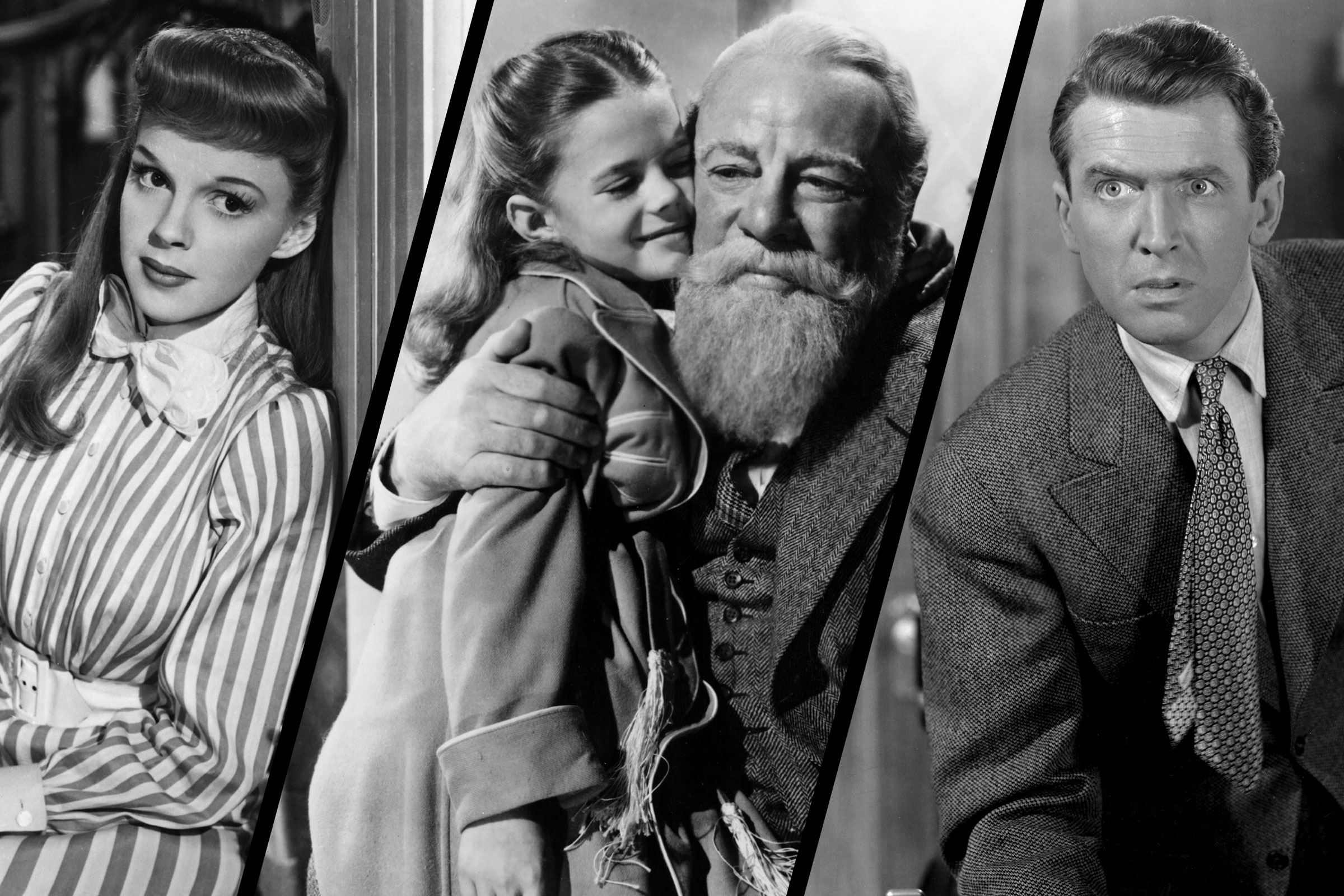
There is something comforting and hopeful in the annual ritual of watching our favorite Christmas movies. Why wouldn’t we want to invite George Bailey and the Smith family of St. Louis to drop in during the holidays year after year?
These movies mean a lot to us as repeat viewers, but for the children of the actors and filmmakers who created these unforgettable gems, there is a deeper and more personal connection. We asked some of them to tell us about their memories of these beloved films and the parents who created them.
Read more: The Best Christmas Movies to Watch Right Now and All Season Long
White Christmas (1954)
As recalled by Monsita Ferrer, actor and daughter of Rosemary Clooney, who starred in the movie, and Jose Ferrer
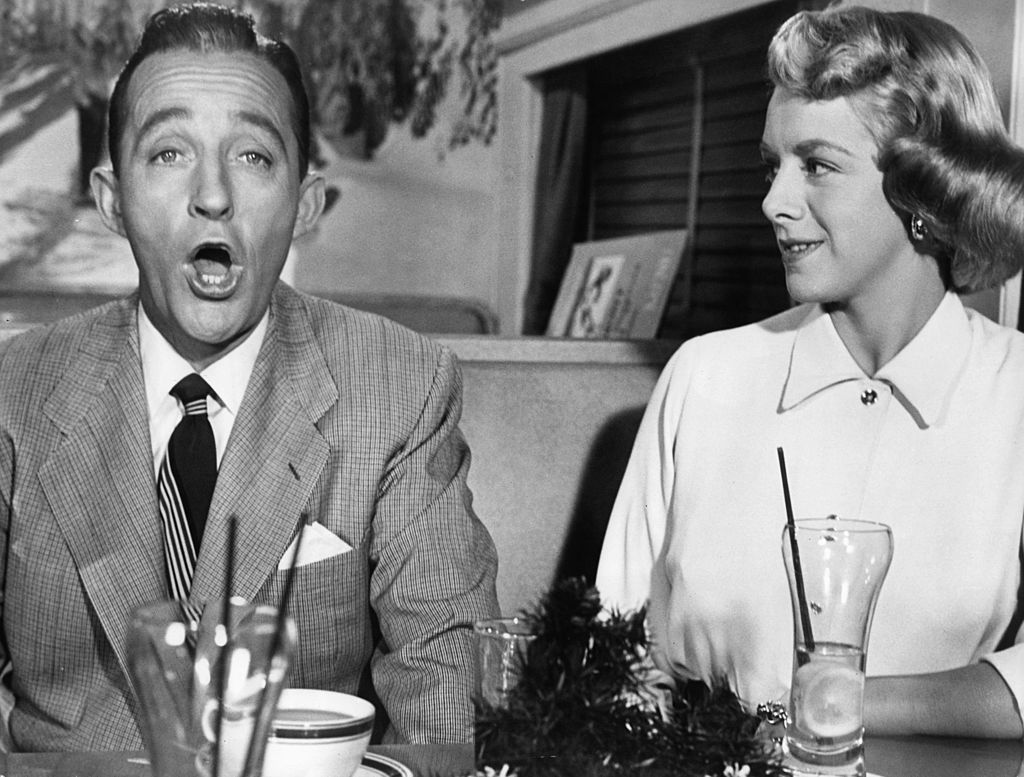
There were two things that we’d always watch on TV as a family, the Wizard of Oz and White Christmas. White Christmas was made before any of us were born, but this movie is simply a part of the fabric of our Christmas.
My mom and Bing were close. I called him Uncle Bing. We were family. By the time we were born, our families were intertwined. I vividly remember a time when I was watching the “Count Your Blessings” scene, and suddenly I’m realizing that they were kissing. I went to Mama and I said, “Why are you and Uncle Bing kissing?” She thought it was the funniest thing she had ever heard. But I was disturbed. Kissing my uncle!
The holiday season was a big time when my mother would be on tour. My siblings and I would watch White Christmas with our grandmother or whoever was taking care of us. But my mother never, ever worked on Christmas Eve or Christmas. Our home at Christmas was spectacular. We had three trees, a white tree in homage to White Christmas in the entryway, a 15-foot tree in the living room and a 10-foot tree in the den. And the bannisters had all these bows on them. My Uncle Nick, George’s [Clooney] dad, used to say, “Your mother had the worst case of Christmas I’ve ever seen.”
I’ve got Mama’s White Christmas poster in my houses. I particularly love it because it’s the one that belonged to my mom. It hung in her office, and she was very proud of it. I have a grandbaby. She loves music, and I want her to grow up with the same tradition of watching White Christmas that I had, and that my kids had. She points to my mom when she comes on screen, and says, “That’s my Grammy!” I can feel my Mama smiling. She’s just four and I’m going to make sure that she gets a good dose of it while I’m still on the planet.
It’s a Wonderful Life (1946)
As recalled by Kelly Stewart-Harcourt, anthropologist and daughter of Jimmy Stewart, who starred in the movie, and Gloria Hatrick McLean
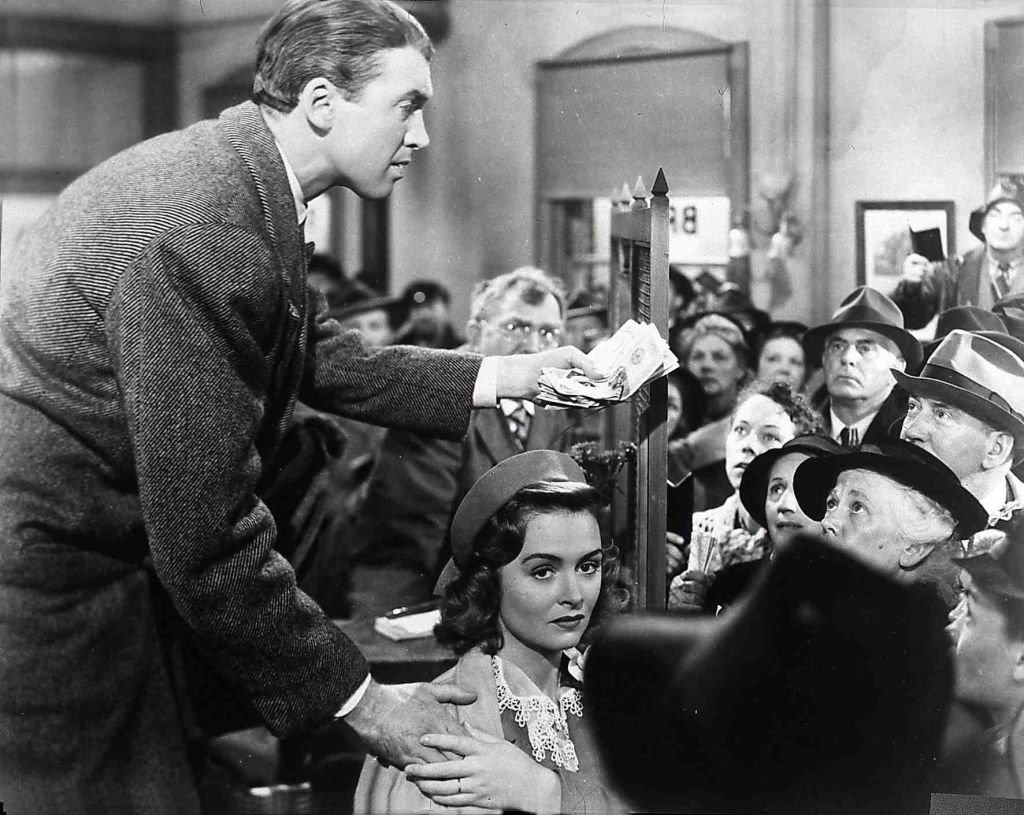
I don’t remember when I first saw It’s a Wonderful Life (from here on, IAWL), but I can’t remember a time in my life when I hadn’t seen it. We watched it at Christmas, gathered around the TV in the library.
Dad didn’t like watching his films usually. It made him too nervous. But he watched IAWL. Sometimes he would be critical and say how he should have done a scene differently, but I think he liked watching it because he was proud of the film. I believe it was his favorite and he felt it was right up there with his best work. I agree.
I think that scene in the bar when George Bailey is at the end of his rope is one of the best scenes of desperation to come out of Hollywood. My mother and sister and I would swear we weren’t going to cry at the end, but it never worked. We would bawl our eyes out—I still do, damn it!—and Dad would sit there smiling.
When Dad came back from the war, he wasn’t really sure what he would do. In some ways, the movies seemed so trivial after what he had been through. I think IAWL was the perfect vehicle. He so respected [director Frank] Capra. The war changed the movies. IAWL was not just a fun romp. It was about sacrifice and helping others and in the end it was about hope. About meaning in everyday life. People needed this after the war. I think this is why the movie became so beloved. George Bailey became everyone’s hero. In these hard, divided times in our country, I have been amazed at how George Bailey crosses the aisle. Rabid Republicans, far left activists, they all claim George Bailey as theirs.
I will no doubt watch the movie again this Christmas, and of course, bawl my eyes out.
Read more: The 10 Best Christmas Movies for Kids on Netflix
Holiday Affair
As recalled by Petrine Day Mitchum, daughter of author and filmmaker Robert Mitchum, who starred in the movie, and Dorothy Mitchum
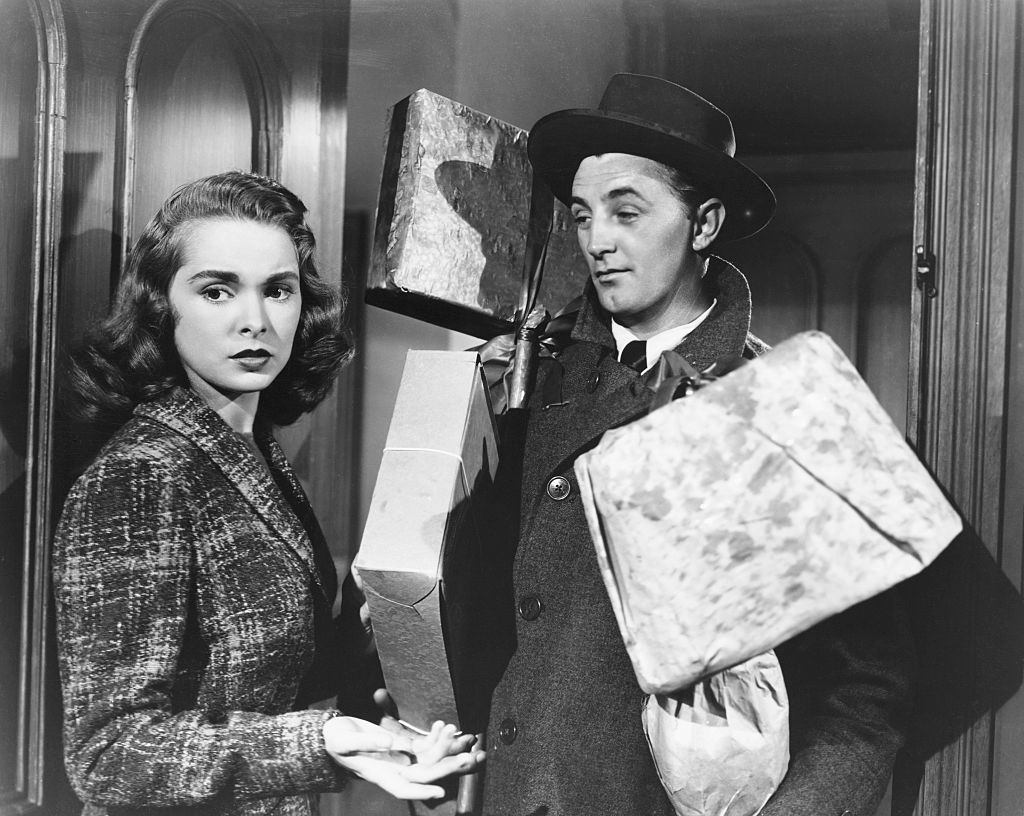
My dad passed away on July 1, 1997, and I was missing him very much as Christmas approached that year. When I was very young we went caroling and always had a huge tree topped with a gold tinsel star that would look more mangled every year. In my teenage years, after my older brothers Christopher and James had moved out, Mom and Dad and I would listen to Sinatra, drink mimosas for breakfast and open gifts. Dad especially liked giving gifts.
So that first December without my dad, I woke up in the middle of the night and turned on the TV. And there he was: my father, young and handsome, in a Christmas film I had never seen: Holiday Affair. He was charming, funny and as charismatic as he could be.
Holiday Affair was a revelation. His character, Steve Mason, is quirky, romantic and moral. He’s a war veteran with ambitions to be a boat builder and he is saving money to move from Manhattan to California. As the film opens, he is working in a department store, demonstrating a model train to a group of kids, who love him. Enter war widow and struggling single mom, Connie Ennis, played the luminous Janet Leigh, who in a plot point that doesn’t bear close scrutiny, buys a train in her job as a comparison shopper.
Mason pegs her as a phony consumer and is fired for failing to turn her in to store management. Mason quickly bonds with Connie’s 6-year-old son Timmy, the remarkable Gordon Gebert, who has a rubber face of fantastic expressions and holds his own in the talented ensemble. When Mason sacrifices to buy Timmy the train he so wants for Christmas, what could be seen as crass manipulation is instead played as genuine kindness to a deserving boy who has lost his father and needs to be shown that dreams can come true.
Leigh had been directed by Hartman to stay in character and improvise if the other actors went off script. In the film’s sexiest scene, my dad took advantage of this. As Leigh told writer Lee Server, “I was in the kitchen and he’s supposed to come up and turn me around and give me a little kiss and I’m supposed to be a little surprised. Instead, he comes up, turns me around, and kisses me in a way that you would never do on a first date! And I knew he did it just to catch me off balance, which he did. I was so shocked I couldn’t speak. And Don Hartman liked my reaction so much they kept it in the film.” Is it odd for me to watch my dad kissing a woman other than my mother? In that moment, I am watching Steve Mason kiss Connie Ennis and I’m as thrilled as any other viewer might be.
Watching Holiday Affair has become a holiday tradition for me. It’s a way for me to reconnect with the best aspects of my father: his humor, his kindness, his passion for life. It’s a feel-good movie with family values and yet it’s not treacly or overly sentimental. As it was for America coming out of the dark days of World War II, it’s still a wonderful escape into a simpler world where love conquers all. And yes, my brothers did get a train set for Christmas, 1949. Our dad, who did not have a luxurious childhood filled with toys, played with it all day.
More from TIME
Read more: These Are America’s Favorite Christmas Movies
The Shop Around the Corner (1940)
As recalled by Nicola Lubitsch, former actor, radio host and announcer and daughter of Ernst Lubitsch, who directed the movie
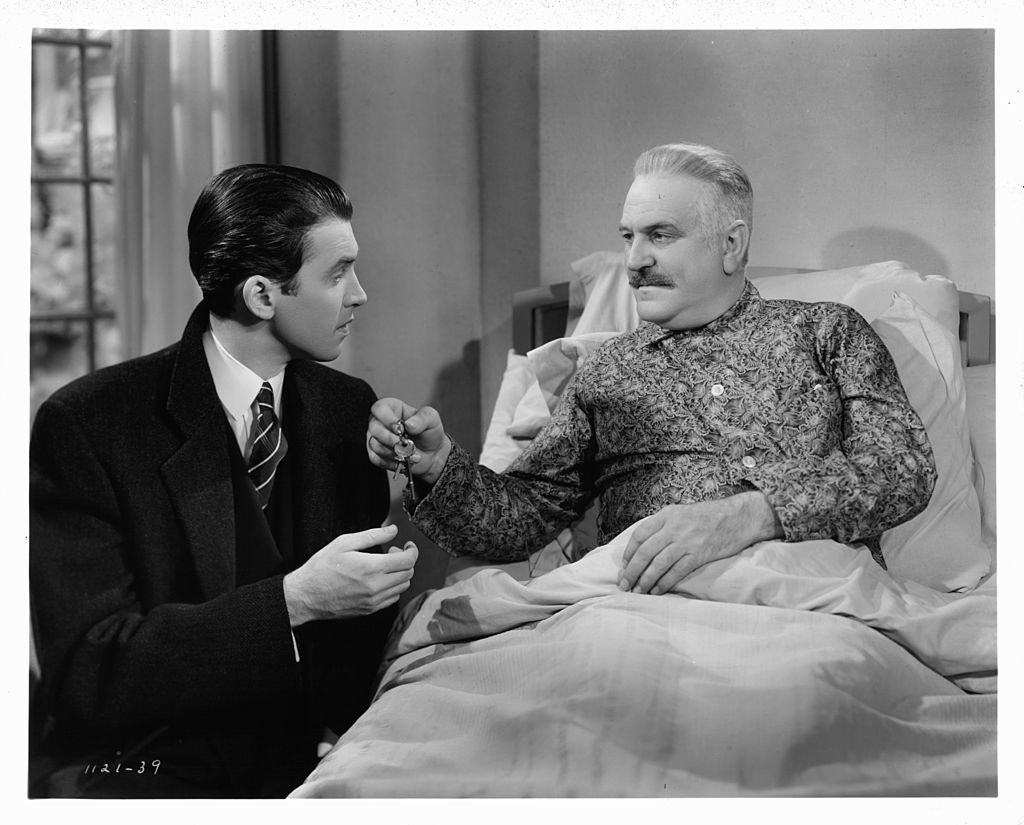
We celebrated Christmas as a big deal in our house. My father was Jewish but my mother was Church of England. He would dress up as Santa Claus, but the illusion didn’t last long because he had a German accent and I thought that was kind of weird. I wasn’t going to let on because I didn’t want the presents to go away.
My parents split up when I was four, but I spent all my holidays with my father in Los Angeles. Growing up I didn’t watch movies with my father. We listened to the radio shows. He was totally absorbed by his work and music. He would come home and I’d make him these awful little cookies and we would listen to Dr. IQ, who awarded silver dollars and boxes of Mars bars if you answered correctly.
I would sit next to him at the piano and Daddy would play music for me. He would make up all these stories. He made up different music for all the voices. When I went to bed at night I would hear him playing the piano and it was kind of like being in what I imagined you would hear in a Viennese café .
I don’t know that I ever paid any attention to Daddy’s movies when I was little because the only movie that he showed me was Heaven Can Wait, and it terrified me. I went screaming out of the projection room.
It was interesting that he chose to do a Christmas story. It’s so unlike his other films. Maybe I’m imagining it, but I see my father in Mr. Matuschek [played by Frank Morgan] and maybe his first marriage, that kind of loneliness.
So many of Daddy’s movies were in Lubitsch Land. There’s a kind of wonderful fictitious life of brocades and silks and waltzes and gorgeous people, and this one is real. It’s just a slice of life. I know that he wanted to make this movie really badly. Nobody wanted him to make it because it was such a small movie. There was no action. No dancing. And he was super proud of it.
It’s a mood and a reality and a place. You can be that person in the shop. You can see yourself in it. That’s a wonderful thing about Daddy’s movies. The message is universal and the humanity in this one is palpable. I think the Lubitsch touch is anything that leaves it to your imagination. All the unfinished sentences. I think Daddy is counting on your intelligence, and your fantasy and imagination and for you to fill in the picture or put up the fourth wall–the opposite of what people do today.
Read more: Sure, Netflix Christmas Movies Are Often Patently Absurd. They’re Also Occasionally Perfect
Meet Me in St. Louis (1944)
As recalled by actor, author, producer and singer Lorna Luft, daughter of Judy Garland, who starred in the movie
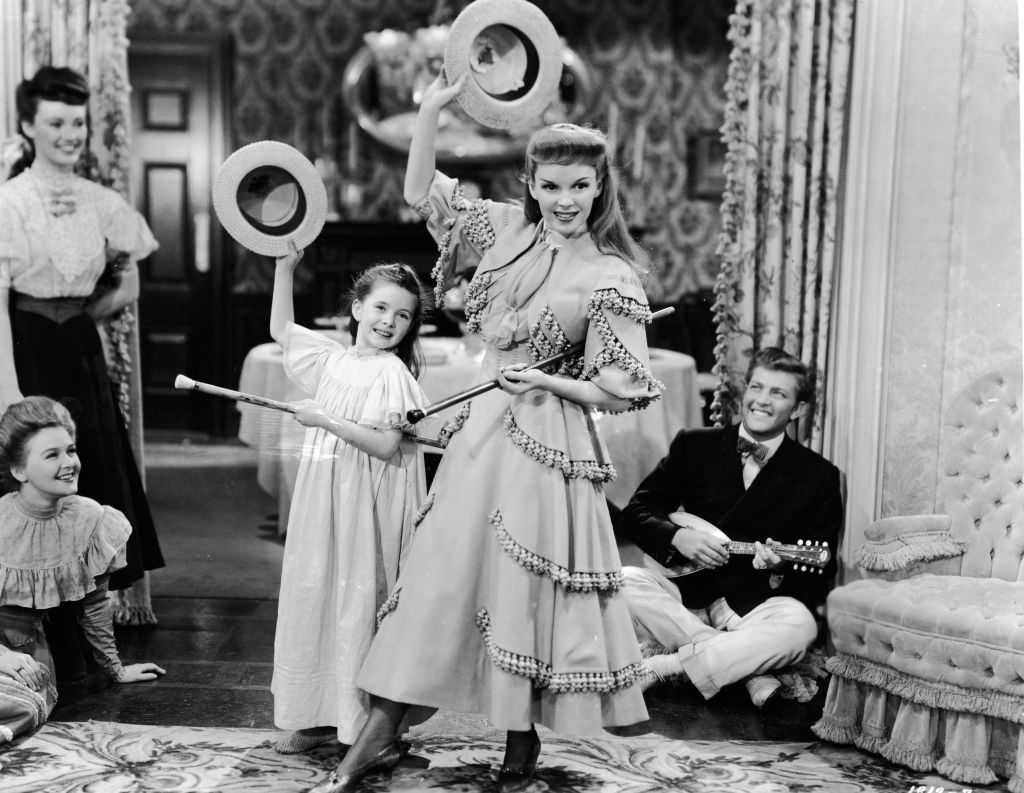
I was about 9 years old and it came on television and my mother said, “I had so much fun making this movie.” So then we watched it, and I was fascinated by Margaret O’Brien. Children are always fascinated by other children.
I think what I appreciated more than anything was the way the film looked. I looked at chairs. I looked at the house and the way the whole thing looked as a period piece. And I thought it was so beautiful and stunning. I thought, wouldn’t it be great to live in that house.
It wasn’t a family tradition to watch it. My mom traveled so much. We were sort of like Gypsies and there was not a lot of tradition in our house. The traditions were those of wherever we were at the time. “Have Yourself a Merry Little Christmas” has become a classic. It shocks me that a lot of people don’t know that song was written for my mother. The original lyrics were very dark. I remember my mother telling me that she went to the writers and said, “I can’t sing that to this little girl.” So they changed the lyrics.
I think the whole movie is perfection. It was shot brilliantly by [director] Vincente [Minnelli]. It was his idea to put in the seasons, which I think made the movie so special and it moved along this lovely story of a family so well.
It was the first time my mom went from getting out of the Andy Hardy kid-next-door-role into becoming a woman. She was so beautiful in the movie. You can tell how much Vincente respected her beauty and her talent because of the way Vincente and George Folsey shot the film.
“Have Yourself a Merry Little Christmas” has incredible meaning for me. After my mother passed away, it was so hard for me to watch that scene. I would duck out. It was too hard to watch. But as time went on I was able to see it as an incredible piece of film. It’s heartbreaking because you don’t like to see little kids crying. My mother used to say that Margaret O’Brien had the best lower lip in the business. She adored her.
I introduced it to my children at 7 or 8. I wanted them to understand it. Now I have three grandchildren and a fourth on the way. They are watching their great grandmother. I asked my grandchildren, “Do you want to watch something really fun?” Looking at it through their eyes was incredible. You’re watching another generation take in this great film. I look at the film now and I think, this is my home movie.
Read more: 11 Christmas Movies You Didn’t Know Were Christmas Movies
Miracle on 34th Street (1947)
As recalled by writer and producer Natasha Gregson Wagner, the daughter of Natalie Wood, who starred in the movie, and Richard Gregson
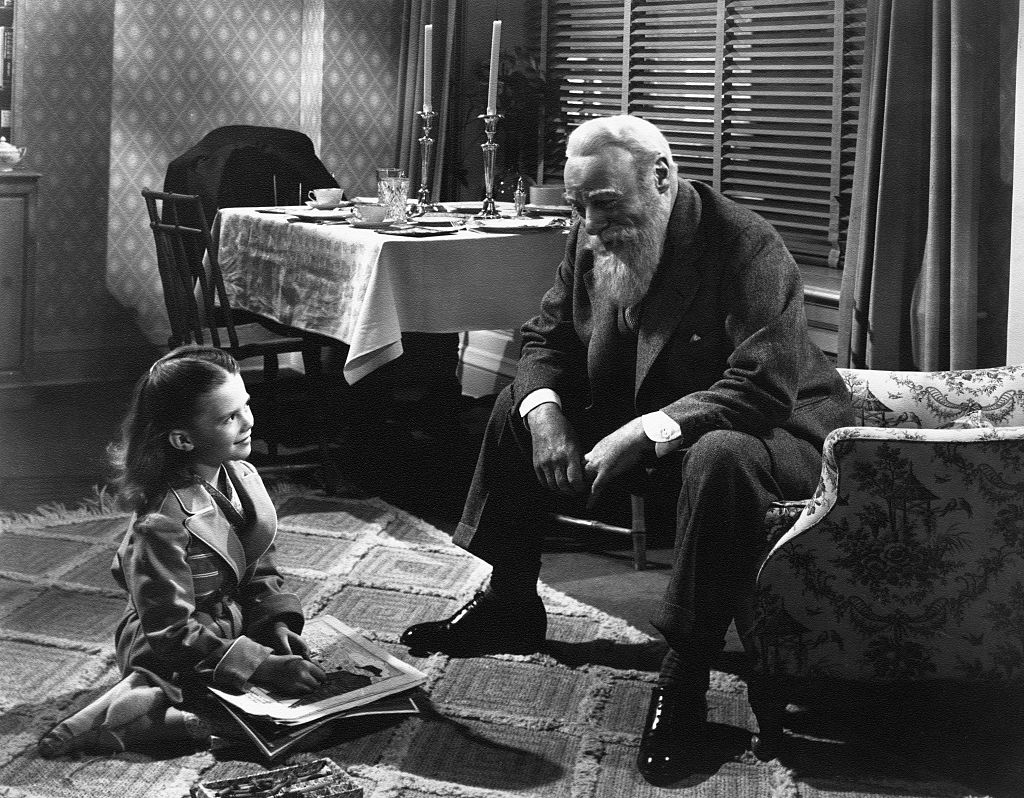
I remember that one day my parents got the VHS of Miracle on 34th Street. I might have been in kindergarten. My mom was really excited to show me the film. She was really easy to gauge when she was excited because she was really tiny and her whole body would vibrate with excitement. She was so emotive, even as a small child, I knew that this was a big deal for her.
We would watch it every year, my sister and I. I know they did a remake, which I never saw, because how could you remake that film! It doesn’t feel corny and fake and saccharine. I think there’s something about the reality of the performances of Edmund Gwenn and Maureen O’Hara and my mom. It’s so rooted in authenticity. You feel like you know her [Wood’s character Susie]. You trust her skepticism and then you trust her believing in Santa Claus. You take the journey with her.
I remember that we had a square box television in our den. My parents put the big thick VHS into the VCR. I just remember I couldn’t believe how much this little girl looked like me. It was this weird moment of me watching the little girl and my mom watching me to see my reaction to her childlike self on the screen, then me watching my mom, and it was like this great circle of generations. She kept asking, “Did you like it? What did you think of Mommy as a little girl? Doesn’t she look like you?”
I have a little bit of my own experience showing it to my daughter, Clover, who is 9 and a half, but when I first showed it to her she was four or five. And I said, “That’s your Grandma Natalie when she was a little girl.” At that age, she just took it in because It’s impossible not to get taken with the story. And my mom is just so cute, when she makes the monkey faces and blowing the bubbles.
Growing up, Christmas was a huge holiday in our house. We had these giant Christmas Eve parties for the kids. They would always get a Santa Claus to come. My dad would go outside and ring these bells and my mom would say, “Girls, I think I hear the reindeer!” Then everyone would squeal with excitement.
We would write a note to Santa. And Santa would write a note to us that our parents would read in the morning telling each of us—Katie, Courtney and I—a little bit about why he was proud of us. I don’t know if making Miracle was what instilled this love of Christmas for my mom or if it was her parents, who were Russian immigrants and Christmas is a big deal in Russia. My mom just loved seeing us happy.
I’m proud to have my mom in this film. And hopefully my daughter will show her children the film in 20 or 30 years and it will just continue. Anyone with parents who are actors realizes how lucky they are because it is all immortalized on the screen. So it’s a beautiful, lucky thing.
The Bishop’s Wife (1947)
As recalled by Peter Lewis, a founding member of Moby Grape and the son of Loretta Young, who starred in the movie, and Tom Lewis
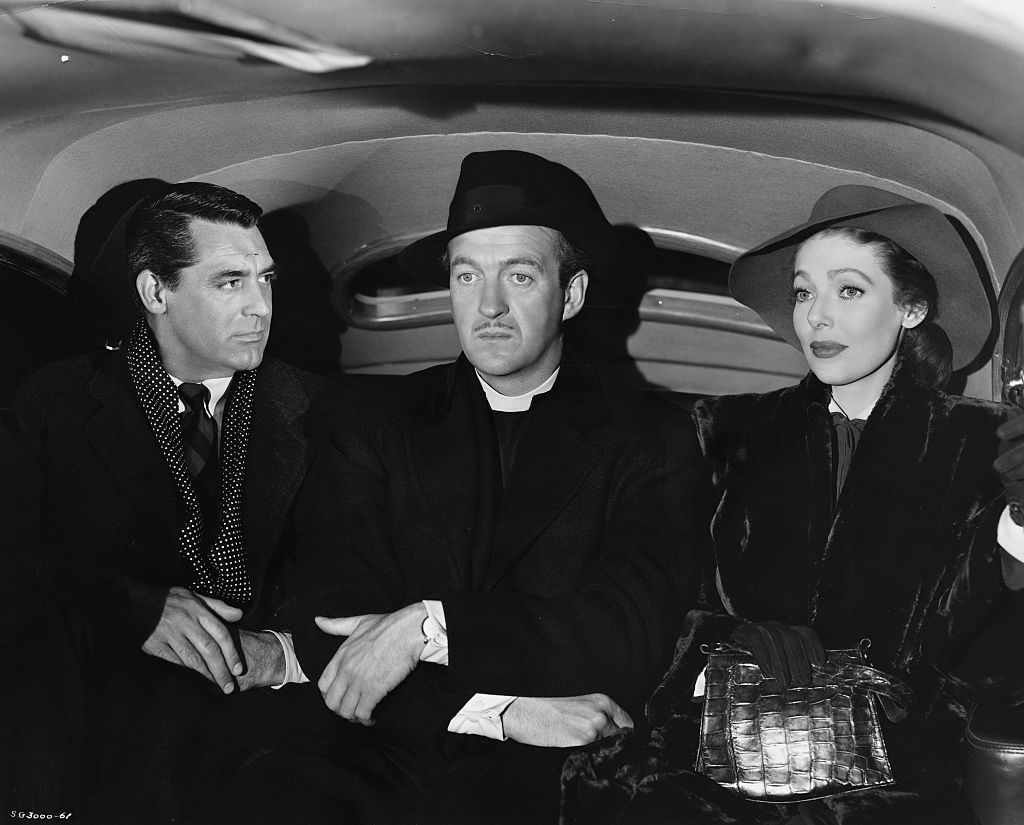
I don’t consciously remember the first time I saw The Bishop’s Wife. I was two years old when it was made. One of my first memories is of David Niven visiting my mother there and him being very kind.
In those days there were no videos or DVDs. The only place you could see a movie was in a theater. So my first conscious memory of seeing The Bishop’s Wife is from when I was a already a teenager. We were living in West Hollywood and my mother was doing her TV show then. I recall watching TV movies with her one Friday night when The Bishop’s Wife came on.
Of course it was Christmastime and like everyone else who ever saw it, I was enchanted. After it was over, I remember my mother turning to me and smiling. Although she took a lot of her professional life in stride, my sense, even then, was that she was very proud of this one. Thinking about it over the years, I have decided that to her, The Bishop’s Wife came closer to the values she personally believed in than any of her other movies.
Especially now that she’s gone, I watch it all the time and not only at Christmas. I guess it’s partly due to it reminding me of my younger days when the world seemed less troubled. But beyond that, I also get the timeless sermon that David Niven delivers at the end. In it he says any hope we have for the future must be in each other. I know it’s not a new message. But there’s a ring of truth to it that makes me feel better every time I hear it.
As recalled by actor and author Jennifer Grant, daughter of Cary Grant, who starred in the movie, and Dyan Cannon
I remember loving the film as a child. It seemed perfectly natural to me that Dad might do such magical things. Dad always had a rather supernatural effect on the world around him. Like Dudley, he had a way of taking in those he encountered and leaving them with a smile. In my mind he wasn’t playing an angel, he was just being himself.
Dad and I watched the tree dressing scene many times over the years. As I recall, it was spliced into Academy Awards shows and various tributes. How can one help but smile watching Cary Grant effortlessly orchestrate a tree’s dressing?
Dad rarely spoke of his acting work. I wish I’d asked more. On the rare occasion we did watch a film together, I glimpsed the deep smile Dad modestly tried to conceal. He never wanted to seem too proud of himself.
The skating scene is my favorite—when Dudley and Julia invite their taxi cab driver, Sylvester, to give it a whirl. Dudley seems to invite everyone to the party wherever he goes. In the angel’s own words, when asked where he’s from, “I’m from my own little island. Aren’t we all? That’s what makes life fun.”
The Bishop’s Wife speaks of the simple joys in an elegant way that sets it apart. Dad navigated those waters with an exquisitely delicate touch. In this holiday season when we are all nose to our screens, or hurrying about town buying endless quantities of unnecessary stuff, it reminds us to pause and remember what our families and communities truly need.
All our efforts at self-aggrandizement—placing our faces on the cathedral’s edifice so to speak—may serve to make us more seen but it won’t scratch our deeper itch for connection. Dad, David Niven and Loretta Young remind us not to be so focused with the bits and bobs that we miss the true joy of being there for one another and simply lending a hand. Sometimes we need reminding of that.
Thanks to TIME, my children and I have held our first annual viewing of The Bishop’s Wife where, with Grandpa Cary’s inspiration, we dressed our tree. Having lost Dad, watching him walk away at the end of the movie tugs my being a bit differently now. As a child I could simply walk into his room. Now I must reach him in subtler ways.
More Must-Reads From TIME
- The 100 Most Influential People of 2024
- Coco Gauff Is Playing for Herself Now
- Scenes From Pro-Palestinian Encampments Across U.S. Universities
- 6 Compliments That Land Every Time
- If You're Dating Right Now , You're Brave: Column
- The AI That Could Heal a Divided Internet
- Fallout Is a Brilliant Model for the Future of Video Game Adaptations
- Want Weekly Recs on What to Watch, Read, and More? Sign Up for Worth Your Time
Contact us at letters@time.com